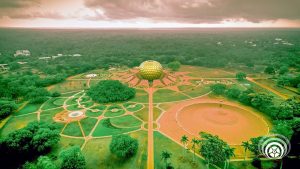Sri Aurobindo emphasizes the importance of vital education, which is often neglected or pursued without discernment and method. There are two main reasons for this: confusion in the human mind regarding vital education and the difficulty of the undertaking itself.
The vital aspect of human nature is a demanding and despotic tyrant. Many people feel a timorous respect for the vital because it holds power, energy, enthusiasm, and dynamism. The pursuit of personal happiness and the belief that one’s character is fixed from birth contribute to the vital’s domination. However, these ideas can lead to conflicts, misery, disappointment, and discouragement.
The pursuit of personal happiness should not be confused with the delight of being, which is a quality of the Divine and unconditioned. The goal of life is not personal happiness, but awakening to the Truth-consciousness. The belief that one’s character is fixed neglects the possibility of fundamental change, which requires a rigorous discipline and mastery over the subconscient.
To initiate the transformation of character, a detailed and discerning observation of one’s character is necessary. Each individual possesses opposing tendencies in almost equal proportions, representing the battle to be waged and the victory to be won. Life itself is an education, encouraging movements that express light or shadow depending on the circumstances and environment. However, a conscious will, guided by a rational method of education, can replace the whims of nature with a logical and clear-sighted discipline.
Vital education should ideally begin as early as possible, focusing on the development and use of the sense organs. Proper cultivation of the senses can surpass ordinary expectations, potentially even developing additional senses beyond the traditional five. Alongside sensory education, discrimination and the aesthetic sense should be cultivated, appreciating and loving what is beautiful, harmonious, simple, healthy, and pure. This aesthetic culture protects the individual from degrading influences and contributes to a refined taste and nobility of character.
The second aspect of vital education concerns the character and its transformation. Traditionally, disciplines aimed at purifying and controlling the vital being have relied on coercion, suppression, abstinence, and asceticism. However, a rigorous and detailed education that involves the collaboration of the vital is more enduring and effective. The starting point is becoming conscious of the various movements within oneself and understanding their causes. The child should be taught to observe, note reactions and impulses, and become a discerning witness of desires, passions, instincts, and weaknesses.
Alongside observation, the will for progress and perfection must be developed early on. Different methods may be appropriate for awakening this will, such as rational arguments, feelings, goodwill, and the sense of dignity and self-respect. Example is a powerful method, and the will should be exercised methodically and progressively, demanding maximum effort and persisting even in the face of difficulty.
To achieve mastery and transformation, a thorough understanding of one’s character is essential, followed by control over one’s movements. The effort and result of this endeavor depend on the value of the ideal one seeks to achieve.
In the next aspect of education, Sri Aurobindo will discuss mental education and its connection to the ideal pursued in the effort for mastery and transformation.



